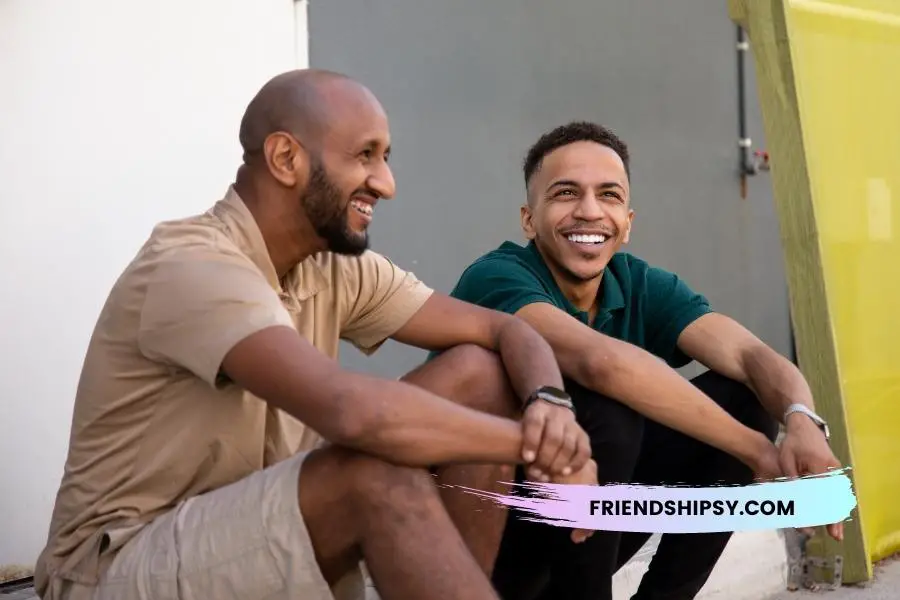The Power of Communication in Mending Friendships
Understanding Each Other
Friendships are important relationships that can sometimes become strained due to misunderstandings or differences of opinion. However, with open communication and a willingness to understand another perspective, even broken bonds can be repaired. When conflicts arise, it’s natural to feel defensive or focus only on your own view of the situation. However, taking a step back and genuinely trying to understand your friend’s point of view is key. Ask them open-ended questions to gain a deeper insight into how and why they felt hurt or upset. Listen without judgment and reflect on whether their perspective could have some validity. This approach shows you respect them and care about resolving issues respectfully.

Recognizing Your Own Role
Another important part of the process is being willing to examine your own actions objectively. Rather than seeing yourself only as the victim, ask what role you might have played through things you said or did that contributed to tensions. Were there times you could have communicated more clearly and directly about an issue that was bothering you? Or instances where you made assumptions about your friend’s intentions that may not have been accurate? Owning up to mistakes or areas of improvement shows humility and a desire for mutual understanding.
Apologizing Sincerely
Once you have gained insight into both perspectives, the next step is to calmly discuss how to move forward in a positive manner. If you determine you were partially or fully at fault, it takes courage but can be hugely impactful to sincerely apologize. Express specific regrets over your behaviors and the impact they had on your friend, without making excuses. An honest apology, coupled with a willingness to do things differently going forward, can go a long way in healing a rift.
Forgiving and Letting Go
On the other side, being open to forgiveness is also key. Try to let go of lingering hurt or resentment from the past. Focus on accepting the other person’s apology if it seems genuine, rather than dwelling on assigning blame. Choose to believe they truly want to do better. Make a conscious decision to leave problems in the past and build a stronger foundation of trust and mutual care for the future. With compassion and forgiveness, people can grow closer even after facing difficulties.
Maintaining Open Communication
The work of mending a friendship does not end with one conversation. Keep lines of communication open by regularly checking in on how each other are feeling in an emotionally vulnerable yet non-accusatory manner. Address any new issues promptly before resentments can build up again. Commit to ongoing respect, honesty and active listening on both sides. With commitment to understanding one another, even severely damaged bonds have the power to be repaired over time through open communication.
Forgiving Yourself
Finally, it is also important to forgive yourself for your own shortcomings. We are all human and make mistakes at times in how we relate to others. Once you have truly owned your role, apologized sincerely and worked to do better, stop dwelling in self-criticism. Have compassion for your imperfections as you would a dear friend. See this as an opportunity for personal growth. With self-forgiveness and a determination to grow wiser from experiences, you can emerge with stronger relationship skills.
Reconnecting After Time Apart
A break in a close friendship can be difficult to navigate even after resolving conflicts. Rebuilding trust requires gentle, consistent efforts over time. Start by checking in casually through lighthearted messages or catching up on mutual interests. Plan low-pressure activities you both enjoy to reconnect in a comfortable setting. Compliment positive changes you notice in each other without dredging up past issues. Express how much you value having them back in your life. With patience and compassion and allowance for awkward moments as you readjust, bonds can strengthen into something deeper than before.
The Healing Power of Time
Sometimes disagreements are too raw to resolve immediately, even with the best of intentions. In these situations, it may be better to take a break from the friendship for a period rather than causing further hurt. Explain you need space but hope to reconcile once emotions have cooled. During your time apart, reflect deeply and work on improving communication strategies.
Set no expectations for the other person and avoid resentment if they are not ready to mend things right away either. Have faith that with self-work, maturity and perspective gained from experiences , people can evolve more understanding over time. If the friendship was deeply meaningful, cherish the good memories while respecting each other’s pacing in healing. Time may be the greatest healer and enabler of forgiveness between well-intentioned people.
The Impact of Small Gestures
Small thoughtful gestures can go a long way in soothing hurts and reaffirming care for a valued friend. Drop by with their favorite coffee or baked good as a peace offering. Send a heartfelt card sharing how much they mean or with funny memories to make them smile. Offer help with a task to show support. Acts of kindness relay that you still see them as precious without pressure or expectation. Casual check-ins show continued interest in reconnecting without forcing the issue. Empathy, patience and consistent caring aid in redeeming relationships worth saving for both people involved.
Maintaining Hard-Won Progress
Once trust has started rebuilding, maintain open lines of communication to solidify gains. Commit to discussing any future conflicts respectfully without reverting to hurtful patterns. Continue checking in on each other’s overall emotional well-being candidly yet gently. Express gratitude for the other person’s efforts in moving past difficulties together. Celebrate milestones of strengthened bonds and perspective gained from facing challenges. With dedication to learning from struggles, friendships emerge closer and more resilient than before. Nurture understanding cultivated through reconciliation to sustain progress toward an even brighter future.
The Rewards of Second Chances
Those willing to do the inner reflective work and make amends often find the fruits of forgiveness and reconciliation profoundly rewarding. Mending broken bonds allows treasured people and experiences back into one’s life with a new appreciation. Facing conflicts head-on and evolving communication skills together strengthens intimacy and trust versus discord derailing a relationship’s potential. Though reconciliation requires vulnerability and effort, its positive impact ripples into all areas of life. With open-mindedness and compassion, even the most damaged of bonds stand a chance at beautiful redemption through honest dialogue.

